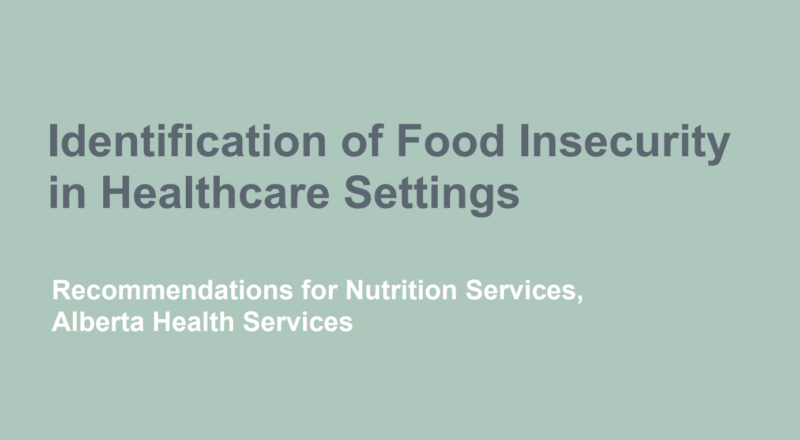Household food insecurity is a potent social determinant of health. Research continues to link food insecurity with increased risk of a wide variety of chronic physical and mental health conditions, injury, and increased healthcare needs. Recognizing this, healthcare professionals have been asking how they can accurately and appropriately screen for household food insecurity.
Alberta Health Services (AHS) has recently published an extensive review of the literature on food insecurity screening in healthcare settings and developed recommendations on this topic. It is a valuable resource for healthcare organizations and professionals thinking about screening for social determinants of health.
In addition to describing different screening tools for household food insecurity, this report asks the critical question, is screening for food insecurity an appropriate or effective action in Canadian healthcare settings?
The options for healthcare professionals after screening are largely limited to referrals for food banks or other food-based assistance, which the review found ineffective for addressing food insecurity.
Food insecurity is a problem of inadequate and insecure income. For screening to be appropriate and effective, it needs to lead to actions that improve households’ financial circumstances.
Instead of specifically screening for food insecurity in healthcare settings, screening for poverty is a more appropriate approach. It supports referrals to assistance to access the benefits patients are entitled to (e.g., applications, tax filing, etc.) and discussions around the root cause of food insecurity.
Alberta Health Services has also produced other resources on household food insecurity in Alberta.
The appropriateness of screening for food insecurity and the implication of household food insecurity for healthcare providers was a key topic in our webinar, How does food insecurity relate to health and what are the implications for health care providers?

